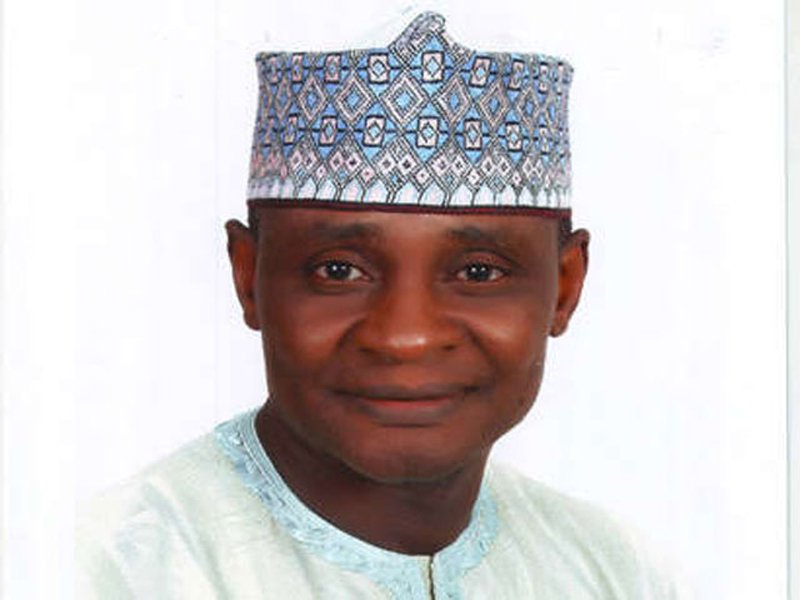Following Nigeria’s round-of-16 defeat by France and the resultant elimination from the World Cup in Brazil, the atmosphere within the nation’s football scene has been somewhat stifling.
Congruously, especially after such fractious campaign, one would have expected the entire football body, which includes the players, coaches, officials and, to a larger extent, fans, to begin the long and quite condemnable process of self-appraisal—or, as the old heads would put it, to ‘go back to the drawing board’. That, however, has not entirely been the case.
On the contrary, the post-tournament activities have been filled with breakouts, breakdowns and break-offs, and as far as the eyes can see, it doesn’t quite seem like the reflective mood would be activated anytime soon.
Former captain Joseph Yobo, whose own-goal condemned Nigeria to the 2-0 defeat against Les Blues, announced his retirement from international football after winning his 100th cap for Nigeria. In truth, his retirement was highly anticipated and equally appreciated-it’s one which shouldn’t take sleep away from anyone’s eyes, really. However, and quite unfortunately, it set in motion a series of ominous events that have left Nigeria’s boat rocking, ceaselessly.
Following the 33-year-old’s timely announcement, Vincent Enyeama, Nigeria’s no. 1 goalkeeper and arguably the Super Eagles’ best player at the World Cup, set a national firestorm when he told Kick Off after the game against France, “I will have to sit with my wife and discuss it (retiring) and make a decision; maybe I will be a few months, maybe a few years. But I can tell you that it is very possible that this could be my last game.”
Without question, the 31-year-old, who is only a handful of caps away from joining Yobo in the century club, has become an invaluable fulcrum within the national team setup. His superlative performances for both club and country have attracted accolades from senior and junior colleagues, as well as laymen.
However, his supposed retirement, arguably more so than that of any other player, has the potential to strip the Super Eagles of some top-class quality, experience and leadership—features the team is in dire need of at this stage.
However, if he decides to carry on with the national team, it is widely expected that the Lille shot-stopper would be named captain of the side on a permanent basis after serving diligently as vice captain for many years under the now-departed Yobo. Then again, however, the never-ending fracas between the Nigeria Football Federation and Stephen Keshi could jeopardise such honourable achievement.
The Big Boss controversially resigned his position as the Super Eagles’ coach after Nigeria’s untimely exit from the World Cup, which an NFF spokesman later denied, stating that the 52-year-old “has not submitted an official resignation letter,” when contacted by Goal.
Honestly, it wouldn’t be much of a mismatch if the NFF and Keshi episode was likened to the famous animated cartoon series, Tom and Jerry, where both characters would agree briefly only to disagree extensively and quite irrationally.
Keshi has been sitting on the edge of the hotseat since the awkward falling-out between himself and the egg-heads from the Glass House in 2013.
Astonishingly, however, the NFF vs. Keshi dilemma, which appeared to be Nigeria’s most intriguing subject all of a sudden, became a secondary matter when local/internal squabbles morphed into international headlines.
The world football governing body, Fifa, was alerted following reports of government interference with football administration in the country. Owning that the World Cup was still ongoing in Brazil, Fifa quietly set up an emergency committee to address Nigeria’s violation of article 13, par. 1 and article 17, par. 1 of the Fifa Statutes which obliges member associations to manage their affairs independently and with no influence from third parties, according to fifa.com.
Subsequently, despite last-minute attempts by some elder-state men to pacify Fifa, Nigeria were suspended from all international competitions at all levels, including club-sides, and were given the 17th July as deadline for the court injunction which apparently dissolved the executive committee of the NFF to be thrown out of court.
Thankfully, at the time of putting together this article, the news has broken that Nigeria have beaten Fifa’s deadline, saving them further international embarrassment and ultimate ban. It was gathered that a special session had been put together by a court in Jos, Nigeria to make the entire process possible.
It’s been quite a tumultuous period for the Nigeria football family since their World Cup elimination, and quite frankly, the writing had been on the wall for some time concerning their seemingly unending woes.
Hopefully, however, the tactfulness, tenacity and togetherness employed to escape Fifa’s hammer would serve as a veritable guideline for all stakeholders directly and indirectly affiliated to the number one sport in Nigeria.







